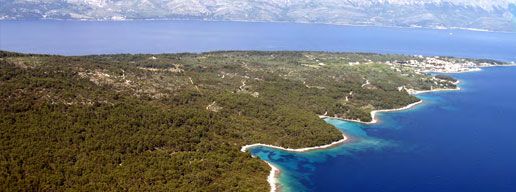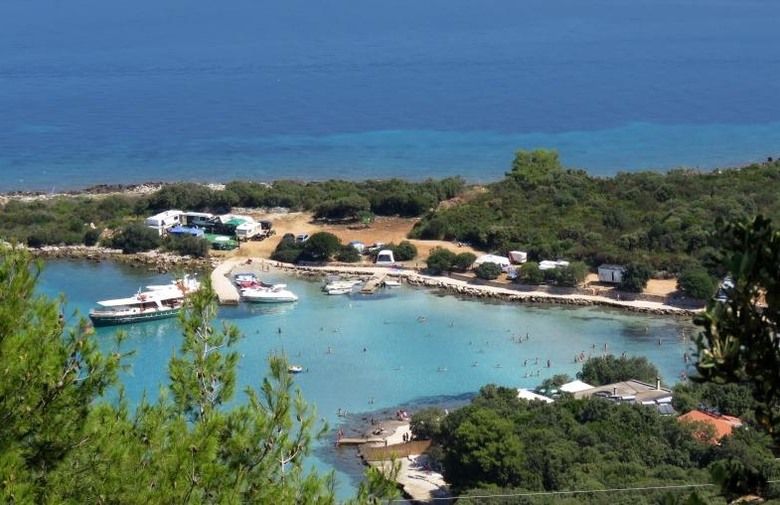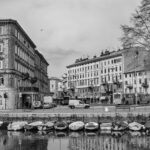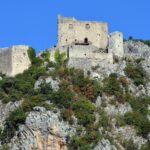Connections make evething possible in Croatia, even when you’re under investigation in several court cases
As you know, we’ve been following the „cursed“ resort project in Sućuraj on Island Hvar for quite some time. With the newest escalation of conflict and a real threat that the 230 million euro worth project might indeed fall through with the involvement of the police and the arbitration investment court due to very questionable promissory notes, as reported in our previous article, we decided to dig a bit deeper and find out who are the domestic players in this story which is unfortunately unfolding according to a scenario we’ve seen way too often here in Croatia. Right at the beginning of this article, I would like to state that neither I or Total Croatia News are taking anyone’s side, but after hearing way too many times how all foreign investors are only coming to Croatia to launder dirty money or with some other hidden agenda, it was time to put the shoe on the other foot and see if all our „successful“ businessmen are as clean as a whistle.
First, a bit of background. Sveti Juraj Bay Resort was a project on which the Norwegian fund started working some 10 years ago. Their plan was to bring tourism to the undeveloped part of the island Hvar, invest approximately 230 million euro and employ 500 people. Seems simple enough. But, this is Croatia. First problem – land ownership. Along with family disputes, since most of our ancestors here in Dalmatia tend to die without their last will and testament so the land is passed on from generation to generation and ends up with 200 owners for every 2000 m2 land plot. The second problem, dispute between the state and local authorities again regarding land ownership since the local authorities on Hvar sold the land that turned out not to be theirs to begin with. Complicated enough? Not in Croatia.
Then we introduce the element of domestic companies. Of course, there are many brilliant exceptions, but unfortunately, not in this case. Norwegian investment fund, or their company Prime Property Kroatia (PPK) to be more exact, decided to purchase a company called „Apodis“, only catch there, it was owned by a „businessman“ Svetimir Gadže. What is very important to note, and quite the opposite of what we have been reading lately in the Croatian media ever since the whole story about the lawsuit came out, Prime Property Kroatia was never in any sort of a partnership deal with Mr. Gadže, they simply purchased his company and integrated it into their Croatian subsidiary of PPK. This might have never been a subject for the media had the Norwegians used Google before going into any business dealings with the above mentioned Svetimir Gadže.

On paper, everything seems brilliant. Successful entrepreneur, former owner of Eurobenz, a man with a solid business background and good connections, which is very important if you want anything done in this country, and the company they were about to purchase was not ridden with debt. That’s where Google comes in. When you type in the name Svetimir Gadže you get a very long list of newspaper articles all related to the same thing – Mr. Gadže’s involvement in various business deals that have ended up in court. And to this day he has come out of all of them almost completely untouched (apart from the few days spent in prison in regards to the Bankomat case, the well publicised affair involving the only domestic bank left Hrvatska Poštanska Banka, a court case which is still in process).
It would take some time to list all of the business dealings that are not exactly in accordance with rules and regulations, but let’s name the ones that were most publicised.
Case 1 Island Šipan – location Čemprijesi
Links to Croatian articles on this subject
Another typical Croatian story. Agricultural land in a fantastic location, 432 000 square meters. The land was originally bought by a struggling former athlete Željko Knapić, who tried to get a bank loan for the purchase, failed and then turned to a financial consultancy from Varaždin which promised him a 2 million kuna loan but only pays out half of the agreed amount. Knapić, faced with financial problems since he had to start returning the first loan even though he never received the full payment, loses the land and it was quickly signed over to the above mentioned consultancy. It didn’t take long for the company to sell the plot to Eurobenz, owned by, you guessed it, Svetimir Gadže. Officially Gadže paid 1,2 million for the land, unofficially, the amount was far greater. Eurobenz soon sold the land to Gadže (in other words he sold it to himself), the whole story ended up in court since Knapić sued everyone involved, but the Varaždin County Court dismissed all charges. Knapić has been protesting ever since, but to no avail. In the meantime, after Gadže purchased the land, it quickly became a zone where tourist developments were allowed and he was planning on developing a 1500+ bed resort (that questionable master plan of the Dubrovnik Neretva County was later overruled in 2014 by the High Administrative Court, making this decision void, as reported by Slobodna Dalmacija). Gadže managed to sell the land before the decision was overturned with a little help of his then business partner and co-owner of their companies Dakma and Dignitas, Oliver Biedengel. Both companies soon fell into financial troubles.
Case 2 Hrvatska Poštanska Banka (Croatian Postal Bank)
Article from the Croatian media can be found HERE (T-portal) and HERE (Dubrovački vjesnik)
When the affair Bankomat (ATM) broke out and the names of all those arrested were published, once again we stumbled upon a familiar name – Svetislav Gadže. The bank was issuing high risk loans to Gadže personally, even though the collateral he offered as a guarantee was nowhere close to the value of the loans. This case is still pending so we do not know the final outcome and whether Gadže will once again be freed of all charges.
Case 3 Anything can be done in Hvar if you know the right people
Before the whole Sveti Juraj Bay Resort story, Gadže was already very active on the island of Hvar. In the adjacent bay, he managed to purchase 90 000 square metres of attractive land with a firm promise from the mayor of Sućuraj Ivan Vitali that his land will indeed be turned into a construction zone so that he can build his condos and villas. Based on this written promise by the mayor, Gadže and his partners managed to secure another loan from the Croatian Postal Bank. Part of the money went directly into private accounts including the account of Vitali’s brother-in-law, all described in the article published by Slobodna Dalmacija. This drew the attention of the tax authorities and this could have very well been the trigger for the whole ATM affair above.
And last but not least, according to Bloomberg and T-portal, Gadže is also one of the largest shareholders of a company called Marjoz (he owns 27,29%). Marjoz is supposed to implement a restructuring plan for Hypo Alpe Adria Bank, so called “bad Hypo Bank” which was involved in almost every major hotel privatization scandal in Croatia in the last decade.

In conclusion, one cannot blame us for thinking there’s something fishy going on here, and for questioning the Croatian judicial system. Will it all result in Hvar losing a potentially valuable tourist project that could have very well revitalized an undeveloped part of the island, created a large number of jobs and will the local municipalities declare bankruptcy once they have to start paying back the money they received for land and communal fees? That remains to be seen.







